If you can think of it--and it can be modeled on a computer--you can print it. Well, almost. 3D printing is still relatively novel in the world of cycling gear manufacturing, but it's coming sooner than you think.
Laser Powder Bed Fusion
Laser Powder Bed Fusion is a type of direct metal laser sintering, an additive manufacturing process in which a laser selectively fuses regions of titanium powder bed layer by layer into the desired form. Through this process, complex shapes and internal cavities, or latticework, are created as part of the manufacturing process. Custom bike stems and handlebars can be created this way.
Stereolithography 3D Printing
Stereolithography (SLA) printing uses light-reactive resin. When SLA resins are exposed to certain wavelengths of light, short molecular chains are bonded into solidified objects. Design your own bike computer mount, print it and head out for a ride.
Fused Filament Fabrication
Another 3D printing process consists of laser heating an extruded filament that is then pressed through nozzles in a specific pattern. This pattern is executed by a robotic arm that creates an object in the desired shape. Materials most commonly used for this kind of 3D printing are plastics, glass, ceramics or metals.
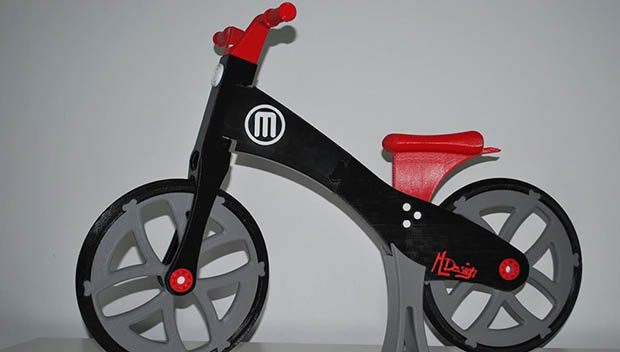
Photo courtesy of MakerBot
DIY At-Home Printing
If you own a desktop 3D printer--which you can purchase at Best Buy or from Amazon--you can download designs, print and assemble a kickbike and then teach your child to ride.
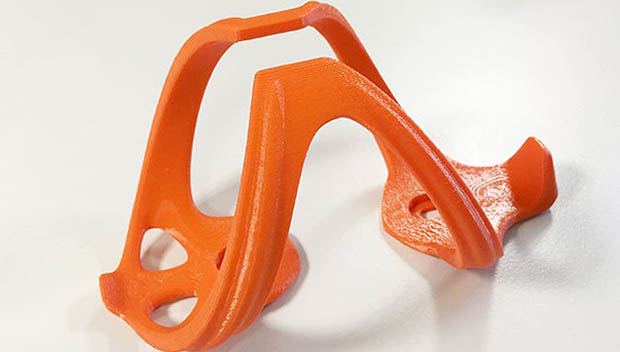
Photo courtesy of Thingiverse
All the Accessories
Accessories, like bike computer mounts and water bottle cages can be rapidly prototyped through 3D printing to ensure a design is sound and usable before they are mass produced. If you're a home user, you can skip the prototyping and print what you need when you need it.
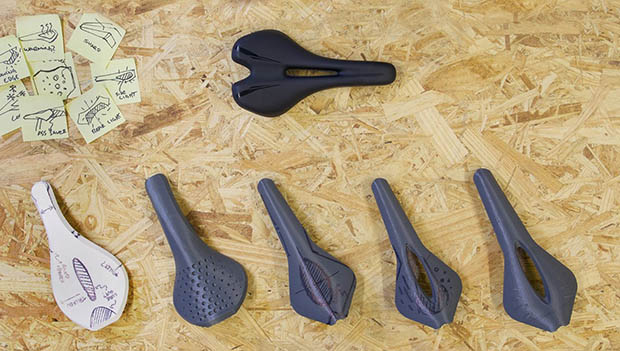
Photo courtesy of MakerBot
Components on Demand
If you're having difficulty selecting a saddle--who doesn't?--you might be able to have one printed to fit your exact specifications. We still advise getting a bike fit first, which might even include a scan of your anatomy you can use to print what fits best.
Bicycle Frame Parts
Team Ineos (formerly Team Sky) had custom cockpits printed for some of the riders' Tour de France time trial bikes. Riders were measured, and a bespoke bar printed from titanium was created to exactly match individual's position and physiology.

Photo courtesy of Autodesk
Put Your Bike on a Diet
3D printed bicycle frame elements, like a bottom bracket shell, can be printed with a lattice structure to save weight, yet remain strong, even under extreme stresses.
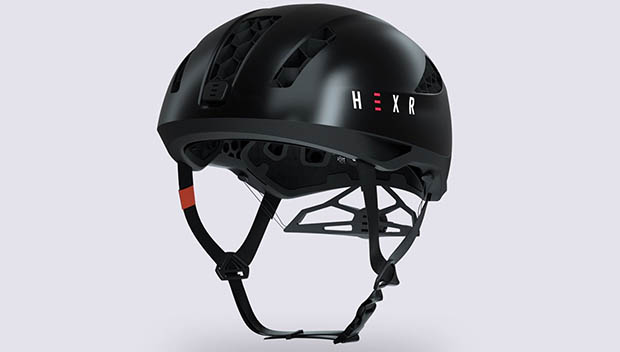
Photo courtesy of Hexr
Keep a Lid on It
Materials that can't be used in traditional manufacturing processes--like castor bean oil--can be used for 3D printing bicycle helmets. Non-petroleum-based materials are more environmentally friendly and can be engineered to offer enhanced safety features too.
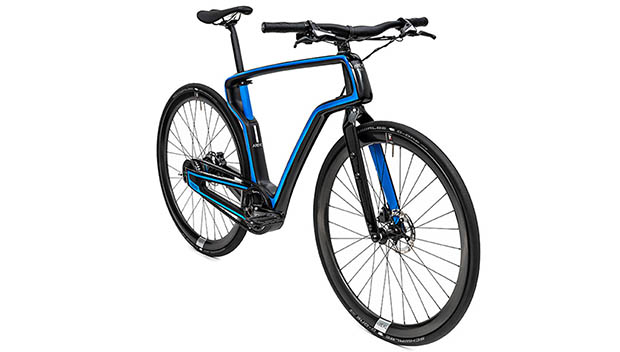
Photo courtesy of Arevo
Ride It
Areveo is now manufacturing bicycle frames through a 3D printing process. Although plastic prototypes were successfully realized, the company will be aiming to produce bikes printed from carbon fiber reinforced filaments for improved durability and enhanced ride quality. A complete bicycle frame could be printed in just eight hours.
READ THIS NEXT: Trickle-Down Bike Tech You Can Actually Afford
About the Author



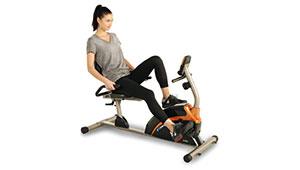





Discuss This Article